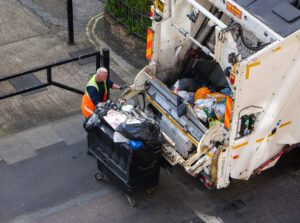Patrick Brighty, ESA’s Recycling Policy Adviser looks in depth at the government’s response to its consultation on the deposit return scheme (DRS) in England, Wales and Northern Ireland.
Friday’s publication of the government’s Deposit Return Scheme (DRS) consultation response marked a significant juncture for the resources and waste sector. While the proposed timeframes for implementation are ambitious following years of delay – admittedly exacerbated by political and global events outside of Defra’s control – the Environmental Services Association (ESA) and its members welcome the additional clarity that last week’s response provides.
ESA recognises the merits of a DRS in helping to capture additional materials for recycling that might otherwise be lost to the system. However, what we have ended up with is overkill. While Defra has rightly focused on addressing littering and driving up recycling rates as its underlying principle for a DRS, the scale of the benefits of an “all-in” approach, as outlined in the impact assessment, seem inflated. ESA considers that the net marginal benefit of an “on-the-go” system would have been significantly greater – offering substantially less cost while still capturing the most commonly littered and unrecycled container formats.
Additionally, the benefits of the full range of RWS policies would have been maximised through a phased implementation. We have argued that Consistent Collections and EPR should be introduced first, as both policies have the potential to deliver many of the same outcomes as DRS. This would have allowed Defra to gauge the efficacy of these policies, and then tailor a bespoke DRS to complement the rest of the system and target any remaining challenging materials. Considering that one of Defra’s key motivations for a DRS was to move us from 70% collection of PET bottles to 90%, it is interesting to note that Belgium captures 95% of PET bottles through their EPR system with no DRS in sight. A delayed implementation could have therefore pared back the requirements, and in turn cost and complexity, of a DRS.
A delayed implementation could also have allowed for digital DRS to become sufficiently robust to be deployed at scale. This would have substantially reduced the system cost, transport movements and worked with existing kerbside collections. Although the consultation response does call for the continued exploration of the ‘feasibility of introducing digital solutions to the scheme’, a post-implementation shift back to digital DRS would risk adding further disruption to the collection and sorting system. And yet, while digital DRS may now be effectively redundant, a partial kerbside system will still have to be implemented through an, as yet, undefined take-back service for online purchases. Though Defra rightly point out that some consumers will struggle to access return points to redeem their deposits, this service is only necessary due to the added complexity
(This article was first published by Letsrecycle.com and has been reproduced with kind permission)




